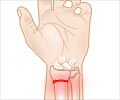Repeated concussions or a severe concussion may lead to long-lasting problems with movement, learning, or speaking.

‘It's important to know that after a concussion the brain is more sensitive to damage. So while you are recovering, be sure to avoid activities that might injure you again.’





Using ultrasound equipment to measure the speed of brain blood flow , Wright and his collaborators in the School of Health and Exercise Sciences, measured the blood flow response to increased brain activity in the brains of 179 junior-level athletes before the athletic season. Athletes who sustained concussions during the season, completed the testing again at three time points after injury. Researchers found a clear link between the brain injury and changes to the brain's blood flow response that were related to how long the athletes were sidelined from competition. But Wright is quick to point out that sports-related concussions are extremely complex and that a single diagnostic tool -- the Holy Grail -- is unlikely. He suggests instead that his technique may be just one among a battery of tests that athletes may one day have access to.
"This is just one piece of an increasingly complicated puzzle," he adds. "It could potentially be used alongside some other cutting-edge techniques being researched both in our lab at UBC Okanagan and around the world; including detecting blood biomarkers and advanced neuroimaging techniques."
Wright says that this technique may one day help determine what degree and what type of concussion an athlete may have.
"The conversation over the past number of years suggests 'concussion' is not a single clinical entity, but rather a spectrum of slightly different brain injuries, all of which are difficult to detect," he adds. "By developing some of these tests we've started to better understand how complex concussions really are."
Advertisement
"The interesting part will be to assemble all of our objective tests into something that starts to resemble a grail."
Advertisement













